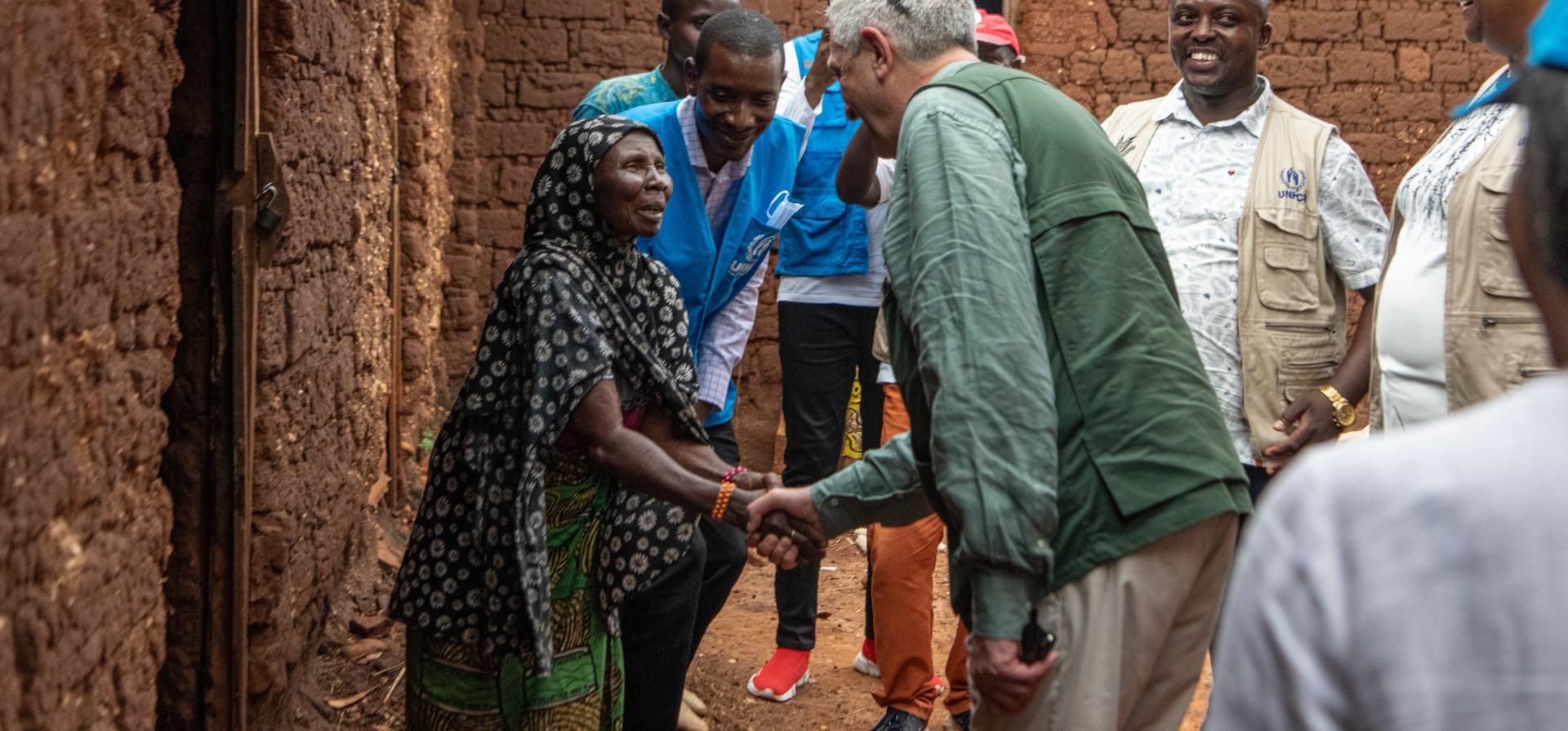In 2023, the number of forcibly displaced and stateless people rose to record highs, an unfortunate symptom of a world in turmoil marked by war, displacement, human rights violations, coups and natural disasters.
With increasing political polarization and paralysis, innocents are paying the highest price. Some crises, such as Ukraine and Gaza, gained – understandably – international attention. Others – regrettably – continued to fail to make it to the headlines: Sudan, Myanmar, the Democratic Republic of the Congo, Haiti... Last year alone, UNHCR declared 43 emergencies in 29 countries, and continued to respond to protracted situations all around the world.
In all these situations, and despite the significant challenges and increased humanitarian needs, we acted to protect, assist and empower forcibly displaced people through our own efforts and in partnership with others.
We worked tirelessly to overcome the numerous challenges – complex operational environments, misinformation and disinformation, xenophobia, funding incommensurate with humanitarian needs or increasingly conditional, and many others. We stood firm against situations threatening the core of international refugee protection, but also engaged, in pragmatic yet principled terms, with proposals that recognize challenges faced by States and communities. We intensified advocacy and efforts so that population movements, particularly those where refugees travel alongside migrants, are considered through a route-based approach that looks holistically at actions in countries of origin, transit, destination and return instead of focusing only on borders. Internally, we advanced our transformation and worked to ensure resources were prioritized for displaced and stateless people.
We are grateful to the States that keep their doors open to people forced to flee, often generously hosting refugees while struggling to address the needs of their own communities.
In 2023, we also welcomed the fact that resettlement figures have picked up again, which helped save lives and build brighter futures for 158,700 refugees in countries such as the United States, Canada, Australia, Germany, France, Norway, New Zealand and Finland.
At the same time, the root causes of displacement continued to remain unaddressed, and those fleeing for the first, second or sometimes third time overwhelmingly outnumbered the one million refugees and 5.1 million internally displaced people who went back to rebuild their lives in their places of origin. More people would follow the same path if support were available. As such, we remained steadfast in our commitment to advocate for the possibility of safe and dignified voluntary returns whenever feasible, including through political solutions to end prolonged and new conflicts.
Despite increasing commitments to address statelessness, including at the Global Refugee Forum, and the commendable efforts by many countries, some of the larger statelessness situations remain unaddressed or progress is slow. Millions of stateless persons continue to be deprived of access to basic rights and services, and only 32,150 people received a nationality in 2023.
We did, however, see remarkable efforts to foster the human development of displaced communities, with various initiatives around the socioeconomic inclusion of refugees into national systems and services. Countries such as Brazil, Colombia, El Salvador, Ethiopia, Jordan, Mauritania, Mexico and Uganda have shown the value of bringing refugees into the job market – a subject explored in the World Bank’s “World Development Report” in 2023. Another exciting new effort for inclusion is Kenya’s “Shirika Plan,” which was initiated in 2023 and aims to transform refugee camps into integrated municipalities over the next decade. Such initiatives need to be supported as well as celebrated. They can be a win-win for refugees and host communities alike, by strengthening inclusive national systems, expanding local labour markets for all, and by making refugees more self-reliant and contributors to the local economy while helping reduce aid dependency and enabling more sustainable programming. This inclusive approach equally contributes to all durable solutions: educated and better-skilled refugees are much better placed to contribute to the development of their countries of origin, or to better integrate in a country of resettlement.
UNHCR’s catalytic role was critical in bringing in other and new actors to respond to displacement situations, and in underscoring that countries hosting refugees provide a global public good and need to be supported. This was clearly felt in the Global Refugee Forum in December. Over 4,000 people, including more than 320 refugees, attended the event, representing States, civil society, faith-based actors, sport bodies, the private sector, development institutions, academics, local and regional governments and others. Through their engagement and more than 1,700 pledges of support, including 42 multi-stakeholder pledges bringing together all parts of society, and financial commitments of $2.2 billion, they demonstrated their continued solidarity with refugees and stateless people.
The Global Refugee Forum showed us the power of multilateralism and gave us hope. However, it also showed us that there is still much work to do. I am grateful to all the donors, hosts, and supporters, and I hope this report will testify to the extraordinary work my colleagues at UNHCR do every day in the service of refugees, displaced and stateless people. We recognize that there are, and there will still be, challenges ahead of us, but we remain undaunted. UNHCR will continue working to protect, respond, include, empower and solve. As we look forward, we trust we will also be able to count on you.

– High Commissioner Filippo Grandi
